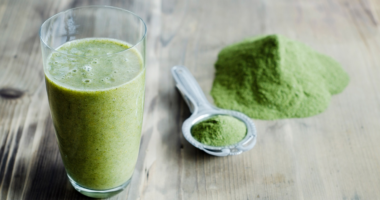Creatine is a naturally occurring substance within our bodies that helps our muscles to maintain a constant state of energy while also promoting lean muscle mass to help you even out your weight. Creatine is usually found in muscle cells, but deficiency occurs in about 30% of the population. Athletes often supplement creatine to help them recover faster and to build muscle mass.
Creatine is a natural nutrient that’s made in our bodies, and one of its main functions is to help our muscles produce energy. Our bodies can store creatine – meaning we can have too much of it – which can cause a host of problems. If you’re looking to lose weight, this can be a problem, since it can temporarily increase the amount of energy our bodies use rather than burning it.
What is creatine?
Creatine is an amino acid derivative constructed from arginine, glycine and methionine. It is produced naturally by the body in the kidneys, liver, and pancreas at a rate of about 1-2 grams/day. Creatine can also be obtained from food (particularly red meat) and supplementation.
The uptake of creatine into muscle cells is an active process. 90-95% of creatine in the body is found in muscle.
Creatine is degraded into creatinine and excreted in the urine at a rate of around 2 grams/day.
Why is creatine so important?
The energy needs of brief, rapid and powerful movements lasting fewer than 10 seconds, such as a short sprint, are met by the phosphagen system. This system quickly replenishes the stores of adenosine triphosphate, or ATP, which provides energy to the working cells. Muscles have an existing amount of ATP hanging around ready for action, but only a little bit — enough for a few seconds. ATP is broken down by removing a phosphate, which turns it into adenosine diphosphate (two phosphates). To make more ATP, the muscles need to get the missing third phosphate from somewhere, quickly.
This is where creatine phosphate comes in. It takes one for the team by donating its phosphate so that ADP can become ATP again, and so you can finish that sprint.
Because creatine plays a major role in this system, more creatine means more potential ATP, which translates into improved performance on short-duration, high-intensity tasks. Because long-duration, low-intensity activities rely more on a different energy system, they are not typically enhanced by creatine — in other words, creatine will help a sprint but not a marathon.
Consuming creatine supplements can increase skeletal muscle free creatine (which makes up about 1/3) and phosphocreatine (which makes up about 2/3) concentrations. These are the naturally occurring energy pools that replenish ATP.
Uptake of creatine into muscle also has a cell volumizing effect by drawing water into the cell. Over the long term, this swelling may increase protein synthesis and glycogen storage.

What you should know
Creatine is taken as a supplement in the form of creatine monohydrate (mainly), because the phosphorylated creatine (creatine phosphate or phosphocreatine) does not pass through cell membranes.
Other forms of creatine supplements have not been heavily studied and may result in more of a by-product known as creatinine. A recent study found that “when compared to creatine monohydrate, creatine ethyl ester was not as effective at increasing serum and muscle creatine levels or in improving body composition, muscle mass, strength, and power.”
Creatine use can improve performance in high-intensity events (e.g., weight training, sprints, etc). Longer duration aerobic workouts may not benefit from regular creatine use.
When following high-dose creatine loading strategies, body mass can be increased by nearly 2 kg (over 4 lbs) in just 7 days. This is mainly due to increases in total body water. However, these rapid water gains are not necessarily associated with lower dose creatine use.
As previously mentioned, long-term use of creatine can stimulate muscle protein synthesis. Plus, when power and strength levels are enhanced, general muscular adaptation can occur indirectly.
The benefits of creatine supplementation may go beyond athletic performance: creatine may have neuro-protective effects on neurological diseases such as Huntington’s disease, Parkinson’s disease, amyotrophic lateral sclerosis (ALS, aka Lou Gehrig’s disease). More human trials are needed to confirm this.
For extra credit
Creatine appears to be safe to use while exercising in the heat.
Creatine does not appear to increase the risk of cramping or injury.
Combining caffeine with creatine shouldn’t negate its effects. (See Creatine Combinations)
Creatine supplementation may be even more beneficial in those on a plant-based diet, due to the lack of creatine consumption from food.
About 20 percent of creatine users are deemed “non-responders.” This may occur because they already have a high enough dietary intake of creatine from whole foods. Conversely, creatine supplementation may be even more beneficial for those on a plant-based diet, due to the lack of creatine consumption from food.
A standard omnivorous diet contains about 1 gram of creatine per day. Typically, additionally benefits occur with intakes of 3-5 grams per day.
Creatine supplementation may be more effective when combined with carbohydrates during the first few days of supplementation. This suggests that insulin may moderate its effects. However, after the first few days, carbohydrates may not be required.
Based on current data, long-term creatine supplementation does not result in adverse health effects.
Creatine supplementation may increase anterior compartment pressure in the lower leg so athletes may want to be careful with creatine supplementation if they’re prone to shin problems.
Summary and recommendations
If you decide to use a creatine supplement:
- Use the monohydrate form
- Consume 3-5 grams of creatine per day
- Dissolve the creatine in a warm beverage like green tea
- You can also take your creatine before and/or after workout sessions with your workout nutrition
- Take a break from creatine supplementation after using for 12-16 weeks
JB-approved creatine brand suggestion
References
Click here to view the information sources referenced in this article.
Spillane, Mike, et al. The effects of creatine ethyl ester supplementation combined with heavy resistance training on body composition, muscle performance, and serum and muscle creatine levels. Journal of the International Society of Sports Nutrition 2009, 6:6doi:10.1186/1550-2783-6-6.
Watson G, et al. Creatine use and exercise heat tolerance in dehydrated men. J Athl Train 2006;41:18-29.
Greenwood M, et al. Creatine supplementation during college football training does not increase the incidence of cramping or injury. Mol Cell Biochem 2003;244:83-88.
Greenhaff PL, et al. Influence of oral creatine supplementation on muscle torque during repeated bouts of maximal voluntary exercise in man. Clin Sci 1993;84:565-571.
Green AL, et al. Carbohydrate ingestion augments skeletal muscle creation accumulation during creatine supplementation in humans. Am J Physiol 1996;271:E821-E826.
Green AL, et al. Carbohydrate ingestion augments creatine retention during creatine feeding in humans. Acta Physiol Scan 1996;158:195-202.
Schilling BK, et al. Creatine supplementation and health variables: a retrospective study. Med Sci Sports Exerc 2001;33:183-188.
Paddon-Jones D, et al. Potential ergogenic effects of arginine and creatine supplementation. J Nutr 2004;134:2888S-2894S.
Baechle TR & Earle RW. Essentials of Strength Training and Conditioning. National Strength Training Association, 2nd ed. Human Kinetics. Champaign, IL. 2000.
Borer KT. Exercise Endocrinology. Human Kinetics. Champaign, IL. 2003.
Eat, move, and live…better.©
The health and fitness world can sometimes be a confusing place. But it doesn’t have to be.
In it you’ll learn the best eating, exercise, and lifestyle strategies – unique and personal – for you.
Frequently Asked Questions
Why Creatine is bad for you?
Creatine is bad for you because it can cause kidney damage, muscle cramps, dehydration and diarrhea.
What happens when you start taking creatine?
Creatine is a naturally occurring substance that is found in the body. It helps to supply energy to muscle cells, which can then be used for physical activity. When you take creatine, it increases the amount of creatine in your muscles and helps them work more efficiently.
What are benefits of creatine?
Creatine is a compound that is naturally produced in the body and found in meat, fish, and dairy products. It helps to increase muscle mass by providing energy for muscle contraction. It also helps to maintain muscle mass and strength during periods of weight loss.
Related Tags:
what is creatine used forcreatine effectscreatine benefitsdangers of creatinewhat is creatine in the bodybest creatine,People also search for,Feedback,Privacy settings,How Search works,what is creatine used for,creatine effects,best creatine,dangers of creatine,what does creatine do,creatine benefits,is creatine safe,creatine foods

